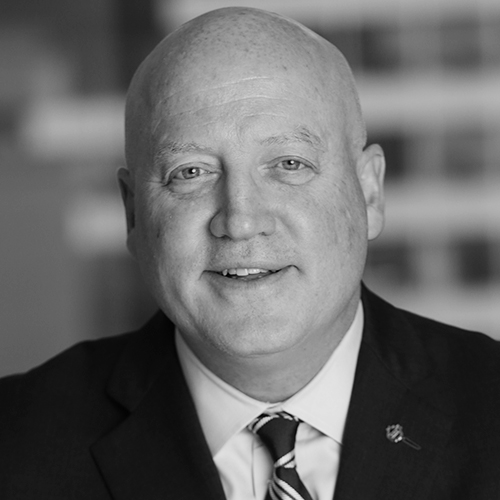In 1982, Vicki Cansler was a twenty-something nurse-recruiter at Glenwood Regional Medical Center in West Monroe, Louisiana, when she got a call to report to the CEO’s office.
“I had no idea what was going on,” she explains. “A call to the CEO’s office is typically not good. But it turned out that the CEO wanted me to lead the hospital system’s personnel department. I was surprised. The only thing I knew about personnel was that they hired and fired people.”
Even so, she was up for the challenge. However, Cansler had one caveat for the CEO. “I told him that I wasn’t going to be in a basement office all day sending out memos,” she says. “I needed to be out with the employees to understand what their needs are and to help them understand what we in human resources can do for them that will be aligned with management and thus work toward solutions.”
The CEO embraced the idea and gave her the green light to go for it.
Cansler says it was his blessing that allowed her to think creatively and to develop a visionary approach to human resources in the healthcare field. It’s a plan she has followed for more than thirty years. Now, Cansler characterizes her style as one that is concerned and more about being a talent-
advisory voice for the company. After all, people problems are business problems.
“Traditionally, HR did nothing but transactions,” she says. “They were a clerical shop and not looked at as trusted strategic advisers in the business. They hired and fired and processed paperwork. But that wasn’t going to be my focus.”
And it hasn’t been. Cansler has always employed a service-delivery model that includes HR business partners that reside with the business and consult and advise on talent issues and initiatives, with support from HR centers of excellence: benefits, compensation, learning and development, employee relations, and recruiting.
“Communicate, communicate, communicate. That’s been the key. Employees need to feel respected and valued.”
Cansler, a Louisiana native, says she is grateful for a career that could certainly be described as nontraditional. She has worked in the private and public healthcare sectors, as well as on the payer and provider sides of the healthcare table. Along the way, veteran HR leaders have mentored her. She’s also worked many years in professional services with both Deloitte and Booz Allen Hamilton Inc. and taken advantage of numerous opportunities to continue her education. “All of these settings have given me a broad view of the whole gamut of healthcare, from how it’s delivered to how it’s paid for,” she says.
In 2013, Cansler became the chief human resources officer at Piedmont Healthcare in the Atlanta area. Her three decades of experience provided her with a solid foundation for this current job.
Piedmont was founded in 1905 when two Atlanta-area doctors opened a hospital to serve patients and offer surgical services. Today, Piedmont is a nonprofit that serves nearly two million patients across Georgia. The system includes seven hospitals, nineteen urgent-care centers, ninety-four physician-practice locations, and 1,615 Piedmont clinic members. Piedmont’s purpose is to make a positive difference in every life that it touches, and the nonprofit also promises to do this in a way that is genuine, respectful, and heartfelt. For Cansler, the organization’s purpose means she strives to improve the daily lives and the overall employee experience of Piedmont’s more than sixteen thousand employees. “The hospitals have their customers: those are the patients who come here for services,” she says. “HR’s primary customers are our employees and our leaders who we equip with programs and tools to help them provide high-quality, patient-centered care.”
The healthcare system has seen tremendous growth during the past decade, mainly through acquisitions of regional healthcare operations. In the mere four years that Cansler has been with Piedmont, more than four thousand employees have been added to the system. With that comes change, and she knows that change is never easy, especially when it involves one’s livelihood. Thus, it has been Cansler’s goal to ensure that Piedmont’s newly acquired employees are not only integrated into Piedmont’s procedures and policies, but they are also made to feel a part of Piedmont’s nurturing culture.
“In these acquisitions, I’ve learned to respect what employees value,” she says. “These would include retirement packages, paid time off, and any incentive programs. These are important to people, and they want to know, up front, how a merger or
acquisition is going to affect these programs.”
For the most part, these large-scale mergers have gone well, Cansler says. Transitioning employees have repeatedly told her HR department that they have appreciated the company’s transparency in addressing issues and concerns that have arisen. Cansler says that employees have noted that Piedmont’s HR representatives have been honest and open about the transition process. “We’ve heard that we were up front early on about the amount and the type of change that was to occur and that we took them along the journey step by step. It wasn’t all done at once,” Cansler explains. “Communicate, communicate, communicate. That’s been the key. Employees need to feel respected and valued.”
To measure HR’s success, Cansler believes in using metrics. Her HR scorecard includes statistics on turnover rates, the time needed to fill hospital positions, and satisfaction with the HR Service Center, as well as learning and development metrics.
“The HR scorecard is a reflection of the organization’s Balanced Scorecard,” Cansler says. “The HR metrics help to provide focus on areas that are performing well or need improvement to help the whole organization move forward.”
For instance, Cansler notes that Piedmont has been focusing on lowering the company’s first-year turnover rate, and the metrics have shown improvement.
“Turnover, in general, is high in healthcare because there are a lot of opportunities in this field; a nurse can go next door to another facility for fifty cents more an hour and multiple hiring incentives,” Cansler says. “For us at Piedmont, though, it’s about more than a paycheck. It’s also about the work environment, work schedules, and leadership. It’s the comprehensive employee experience from prehire throughout the course of an employee’s career.”
Cansler draws a connection between the hospital’s declining turnover rate and two recently introduced corporate initiatives. The first of these is identifying new employees with unique badges.
“Employees and leadership are then encouraged to stop and welcome these new hires when they encounter them,” she explains. “It’s a little gesture that makes new hires feel welcomed, and we hope it will help lower our first-year turnover rate.”
In the second initiative, Piedmont has introduced an executive calling card system. Piedmont executives are provided with cards each month with the names of recently hired employees. They are then expected to schedule a meet-and-greet with these new employees.
“It promotes executive presence as well as making our employees feel welcomed,” Cansler says. “It takes an entire team working together to focus on the issue and the solutions.”
Small but significant efforts like these characterize the thoughtful leadership that she brings to the world of HR.
Looking ahead in leading talent for Piedmont, Cansler’s critical priority is continuing to enhance the entire employee experience, with goals to improve engagement scores and to continue to reduce turnover to make Piedmont a destination employer in the Atlanta marketplace. She has major initiatives underway to continue this pursuit, such as retooling talent acquisition and onboarding to ensure employees are a culture fit and that they acclimate to the culture; developing skills and talent, both leadership and staff; and focusing a total health management initiative with the goal of improving the health of employees and their families and driving down the cost of healthcare. If there is a legacy for Cansler to impart at Piedmont, it is enhancing the employee experience with solid results to support overall company improvement.
At Lockton Dunning Benefits, our clients’ needs are our first priority. Because we are privately owned, our Associates have the freedom to focus on our three stakeholders: our clients, our Associates, and the communities in which we do business.
The Table Group, a Patrick Lencioni Company, congratulates Vicki Cansler, chief people officer of Piedmont Healthcare, for this highly deserved recognition. Vicki’s leadership around organizational health and team effectiveness has been a true game changer for the healthcare system. Organizational health is about making a company function effectively by building a cohesive leadership team, establishing real clarity among these leaders, communicating that clarity to everyone within the organization, and putting in place just enough structure to reinforce that clarity going forward. To learn more about how The Table Group supports Piedmont Healthcare as well as the services we offer, please contact Pam Bilbrey at pam.bilbrey@tablegroupconsulting.com.

